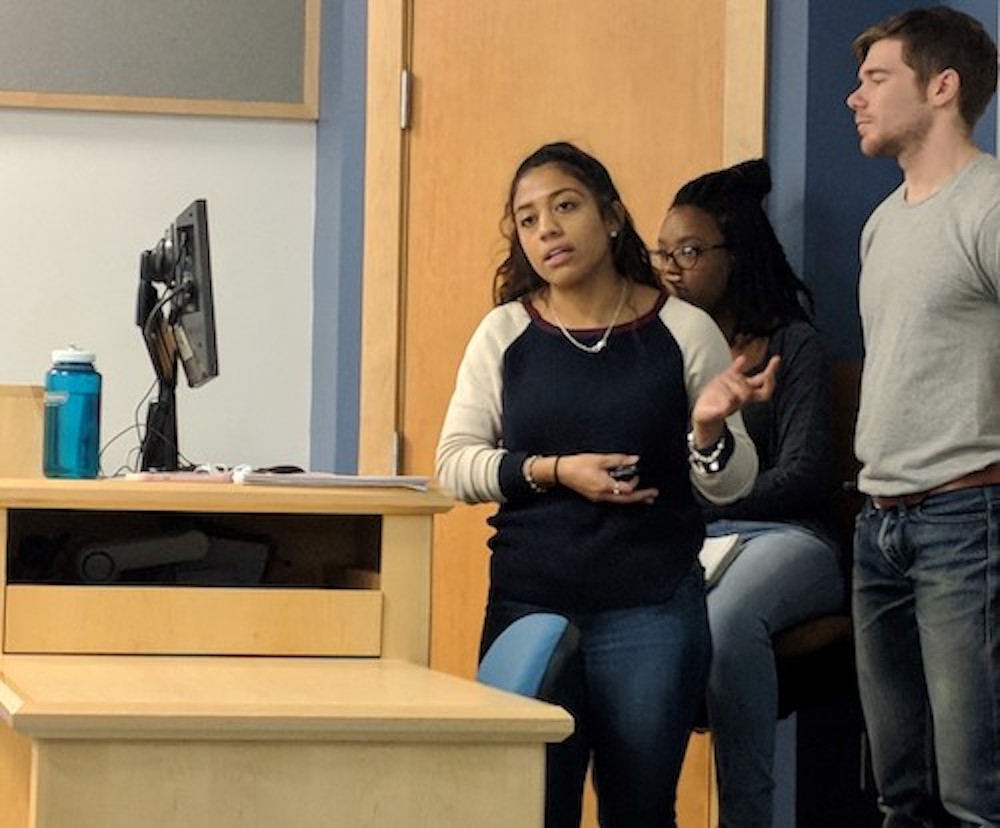
-
Curriculum
-
The Curriculum of the Biomedical Masters Program (BMP) is designed to supplement, improve, and extend preparation for a career in biomedical sciences. The program emphasizes the development of thinking skills rather than the distribution of information. This will be done by covering a subset of key aspects of biomedical science topics emphasizing analytical, evaluative, and scientifically creative thinking skills that will prepare our students for advanced biomedical training.
The curriculum is designed to achieve two major objectives
- Improve student preparation
- Promote the development of individual and collaborative work and study habits appropriate for the health sciences
These goals will be achieved through an integrated series of active-learning courses, exceptional experiential opportunities, and dedicated one-on-one advising, mentorship, and coaching, designed to enable students to successfully apply to and perform well in professional or graduate health science schools.
The core of the BMP curriculum is an integrated series of courses taught using traditional and innovative designs, featuring science education-based instruction and targeted to bolster admissions to and performance in health sciences post-graduate schools. The course topics are limited to a small number of foundational science topics, with an emphasis on analytical and evaluative thinking skills. The lectures, faculty-mentored active small-group, and self-directed learning activities feature methods and logic the students can use in their future training. In particular, emphasis is placed on how the foundational science principles of genetics, biochemistry, and cell and molecular biology can be integrated with the analysis of disease and treatment, from diagnosis to pathogenesis to evidence-based treatment options.
-
Experiential Training
-
The BMP will afford opportunities for experiential training specifically tailored to the strengths and weaknesses of each individual student. The areas selected correspond to the typical aspects considered in the review of standard medical and graduate school applications: community service, patient volunteering, shadowing, and research training.
-
Career Preparation Through Advising, Mentorship, and Coaching
-
The BMP provides a multi-tiered approach to Advising, Mentorship, and Coaching.
Faculty Advisor
- Students work directly with their faculty advisor to develop an individualized academic plan, including appropriate opportunities for the Experiential Learning course. one-on-one mentoring to all students. Each student is assigned a faculty mentor and an advisory team to identify strengths and weaknesses of prior training, prepare a preliminary set of career goals, and identify areas that require special attention for success.
Career and Professional Development
- Students may elect to participate in a cooperative model of career adaptability in the classroom, and receive dedicated mentorship through the Biomedical Career Planing courses.
Individual Career Coaching
- Students are paired with a career coach to help discuss and prepare for their careers.
Students are also able to participate in Kaplan courses to prepare for the appropriate standardized test needed for their chosen professional degree programs.
-
Empowering Student Success
-
Lifelong Learning
- Teaching how to think as well as what to know for lifelong learning and career growth
Individualized Attention
- Valuing students as unique individuals and serving their personal career aspirations
Career Success through Strategy
- Developing strategies for lifelong career success
Diversity and Inclusion
- Recognizing the enrichment that diversity provides to the program by actively cultivating inclusiveness.
